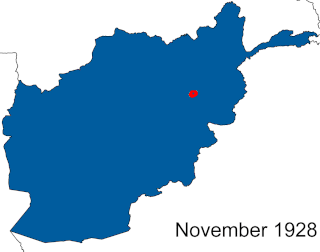
The Afghan Civil War was fought from 14 November 1928 to 13 October 1929. Rebelling, and subsequently governing Saqqawist (Saqāwīhā) forces under Habibullāh Kalakāni fought against various opposing tribes and rival monarchs in the Kingdom of Afghanistan, among whom Mohammed Nādir Khān eventually achieved a preponderant role. Despite early successes, such as the capture of Kabul and defeat of Amanullah Khan on 17 January 1929 or the capture of Kandahar on 3 June, the Saqqawists were eventually deposed by anti-Saqqawist forces led by Nadir on 13 October 1929, leading to Nadir's ascension as King of Afghanistan, who ruled until his assassination on 3 November 1933.

Ghazi Amanullah Khan was the sovereign of Afghanistan from 1919, first as Emir and after 1926 as King, until his abdication in 1929. After the end of the Third Anglo-Afghan War in August 1919, Afghanistan was able to relinquish its protected state status to proclaim independence and pursue an independent foreign policy free from the influence of the United Kingdom.
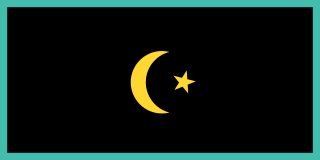
The Khanate of Khiva was a Central Asian polity that existed in the historical region of Khwarezm in Central Asia from 1511 to 1920, except for a period of Afsharid occupation by Nader Shah between 1740 and 1746. Centred in the irrigated plains of the lower Amu Darya, south of the Aral Sea, with the capital in the city of Khiva, the country was ruled by a Turco-Mongol tribe, the Khongirads, who came from Astrakhan. It covered present western Uzbekistan, southwestern Kazakhstan and much of Turkmenistan before Russian arrival at the second half of the 19th century.

The Mianwali District, is a district located in Mianwali Division of Punjab province, Pakistan. It has a border with the Chakwal, Attock, Kohat, Karak, Lakki Marwat, Dera Ismail Khan, Bhakkar, and Khushab Districts.
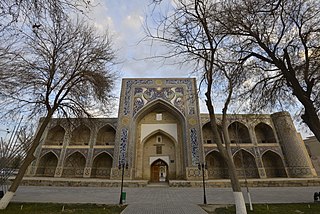
Lab-i Hauz, sometimes also known as Lyab-i Khauz, a Russian approximation, is the name of the area surrounding one of the few remaining hauz pools that have survived in the city of Bukhara, Uzbekistan. Until the Soviet period, there were many such pools, which were the city's principal source of water, but they were notorious for spreading disease and were mostly filled in during the 1920s and 1930s.

Pakistan competed at the 1992 Summer Olympics in Barcelona, Spain.
The following lists events that happened during 1930 in Afghanistan.
The following lists events that happened during 1929 in Afghanistan. The Afghan Civil War continued from the previous year.
The following lists events that happened during 1932 in Afghanistan.
The following lists events that happened during 1933 in Afghanistan.
Zimri Tribe is also called Zimri or Mizri, is a Pashtun tribe in Balochistan and Khyber Pakhtunkhwa, Pakistan. Some Zimri live's in Afghanistan. The name Zimri or Zmarai means "fierce tiger" in the Pashto language. The history shows that one day at the place located in Musakhail city between the Sherani and Isot, the father of Zimri had a fight with tigers in the mountains. After being victorious, the father of Musakhail gave him the honour Zmarai (lion), which means "lion" in Pashto. Zimri, Mizri, the same nation named changed due to the languages of different areas.
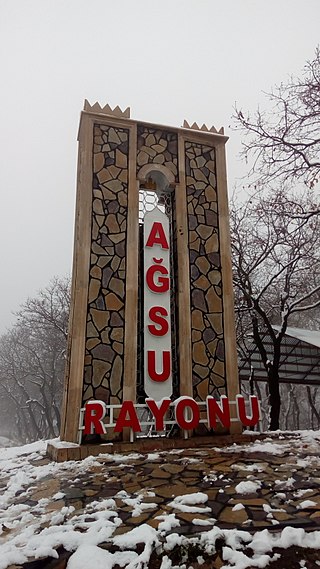
Agsu is a city in and capital of the Agsu District of Azerbaijan.

Mian Noor Muhammad Kalhoro (1698-1755) ruled over Sindh as Subahdar of Mughal Emperor from 1719 till 1736 when he consolidated his power over entire Sindh, subjugating Bakhar Sarkar, Sehwan Sarkar, and Thatta Sarkar under his control and thus establishing a sovereign state, independent of Mughal suzerainty.

Nader Shah Afshar was the founder of the Afsharid dynasty of Iran and one of the most powerful rulers in Iranian history, ruling as shah of Iran (Persia) from 1736 to 1747, when he was assassinated during a rebellion. He fought numerous campaigns throughout the Middle East, the Caucasus, Central Asia, and South Asia, such as the battles of Herat, Mihmandust, Murche-Khort, Kirkuk, Yeghevārd, Khyber Pass, Karnal, and Kars. Because of his military genius, some historians have described him as the Napoleon of Persia, the Sword of Persia, or the Second Alexander. Nader belonged to the Turkoman Afshars, a semi-nomadic tribe settled in Khorasan in northeastern Iran, which had supplied military power to the Safavid dynasty since the time of Shah Ismail I.
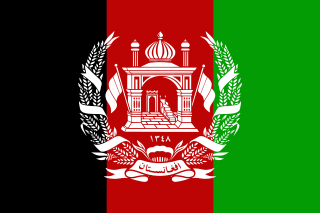
The Kingdom of Afghanistan was a constitutional monarchy in Central Asia established in 1926 as a successor state to the Emirate of Afghanistan. It was proclaimed by its first king, Amanullah Khan, seven years after he acceded to the throne. The monarchy ended in the 1973 Afghan coup d'état.

Mohammad Nadir Shah was King of Afghanistan from 15 October 1929 until his assassination in November 1933. Previously, he served as Minister of War, Afghan Ambassador to France, and as a general in the Royal Afghan Army. He and his son Mohammad Zahir Shah, who succeeded him, are part of the Musahiban.

Abdul Khaliq known as Abdul Khaliq Hazara, was an Afghan student who assassinated Mohammed Nadir Shah, King of Afghanistan on 8 November 1933, during an award distribution ceremony. He was quickly arrested, tortured and later executed by quartering along with most of his relatives.

Riyasat is a Pakistani TV serial aired in 2005, written by Asghar Nadeem Syed and directed by Kamran Qureshi. A true story of love revolves around lives of people from two different societies, today's modern Dubai and a small seaside village. A tale that covers drugs and gold smuggling, human trafficking and evasion from the law.

Afshar conquests in the Persian Gulf and Oman — It was intended to transform the Afshar empire into the hegemonic state of the Gulf by capturing the Persian Gulf and its surrounding territories. All campaigns to capture these regions were initially very successful and many targets were captured. However, Mohammad Taghi Khan, whom Nadir Shah Afshar had appointed as admiral, rebelled, and as a result of the loss of power directed at suppressing this rebellion, some of the earlier territories were lost. However, in the end, Muhammad Taghi Khan was captured, the rebellion was suppressed and the previously lost territories were returned.
The Khost rebellion was a rebellion in Khost that took place in 1912 in the Emirate of Afghanistan, and was the only serious crisis during the reign of Habibullah Khan.













